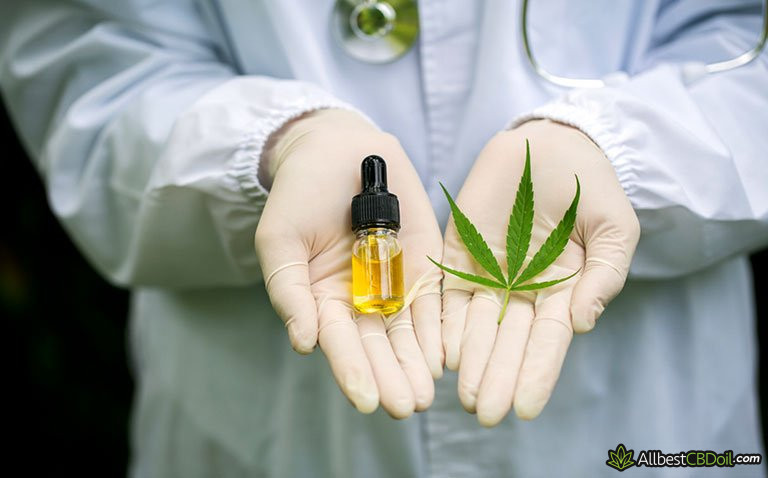
As the use of cannabidiol (CBD) has grown in popularity, so too have questions about its potential for dependency and addiction. CBD derived from hemp plants is widely believed to offer a range of therapeutic benefits without psychoactive effects. But can its prolonged use lead to an unhealthy reliance on this naturally-occurring compound? In this article, we aim to answer the question: Is CBD addictive?
Legality of CBD
CBD, or cannabidiol, is a non-psychoactive compound found in the cannabis plant that has been gaining popularity for its potential health benefits. However, due to the association of cannabis with illegal drugs, many people are concerned about the legality of CBD. In 2018, the Farm Bill was passed in the United States which legalized hemp-derived CBD products as long as they contain less than 0.3% THC (the psychoactive compound in marijuana). However, state laws can vary and some states still consider all forms of cannabis illegal.
Evidence of CBD’s Addictive Qualities
There is limited research on the addictive properties of CBD. However, some studies suggest that it may have the potential for addiction in certain individuals. A review conducted by the World Health Organization (WHO) found that CBD has a low potential for abuse and dependence compared to other substances like THC. Nevertheless, this does not mean that it is completely non-addictive.
One study published in the Journal of Clinical Psychopharmacology found that regular use of high-dose CBD oil led to withdrawal symptoms in some participants when they stopped using it suddenly. The symptoms included irritability, nausea, and insomnia. Another study conducted on rats showed evidence of physical withdrawal symptoms after prolonged exposure to CBD.
It should be noted that these studies are limited and more research needs to be done on the topic before any conclusive statements can be made about CBD’s addictive qualities. It is important for individuals who use CBD products regularly to monitor their usage patterns and speak with a healthcare provider if they experience any adverse effects or signs of addiction.
Studies on Long-Term Use of CBD
Studies on the long-term use of CBD have shown that it is generally safe and non-addictive. A review published in Current Addiction Reports found that CBD has low abuse potential and limited psychoactive effects. This means that individuals can use CBD for extended periods without developing dependence or addiction.
One study published in the Journal of Clinical Psychology found that participants who took high doses of CBD (up to 600 mg/day) for six weeks did not experience any adverse effects. Additionally, another study published in Neurotherapeutics found that chronic use of CBD was well-tolerated by patients with epilepsy.
However, it’s worth noting that more research is needed to fully understand the long-term effects of CBD use. While early studies are promising, there is still much we don’t know about how prolonged exposure to CBD may affect different populations over time. As always, anyone considering using CBD should discuss their options with a healthcare professional before starting any new treatment regimen.
Effects on Brain Chemistry and Receptors
CBD or Cannabidiol is a non-psychoactive compound of the cannabis plant, which has become popular for its therapeutic benefits. One of the reasons why CBD is not addictive is because it does not bind to CB1 receptors in the brain. Instead, it interacts with other receptors such as serotonin and adenosine receptors that are involved in mood regulation and sleep-wake cycles. Studies suggest that CBD can increase the availability of serotonin by activating 5-HT1A receptors, which may explain its anxiolytic effects.
Another way CBD affects brain chemistry is by inhibiting FAAH (fatty acid amide hydrolase), an enzyme responsible for breaking down endocannabinoids like anandamide. When FAAH activity is reduced, more endocannabinoids are available to activate CB1 and CB2 cannabinoid receptors in the body. This can reduce pain perception and inflammation while promoting relaxation without causing addiction or euphoria.
Conclusion
In conclusion, CBD is not considered to be addictive. This is because it does not produce the same psychoactive effects that THC does. Unlike THC, which directly binds with CB1 receptors in the brain to produce a high, CBD works by indirectly interacting with these receptors and other neurotransmitters in the body.
Furthermore, multiple studies have demonstrated that CBD has potential therapeutic benefits for individuals struggling with addiction. For example, research suggests that CBD may help reduce drug cravings and withdrawal symptoms associated with substance abuse disorders.
Overall, while more research is needed to fully understand all of the potential benefits and risks associated with using CBD products, current evidence suggests that they are generally safe and non-addictive when used as directed. As always, individuals should consult their healthcare provider before starting any new supplement or medication regimen.



